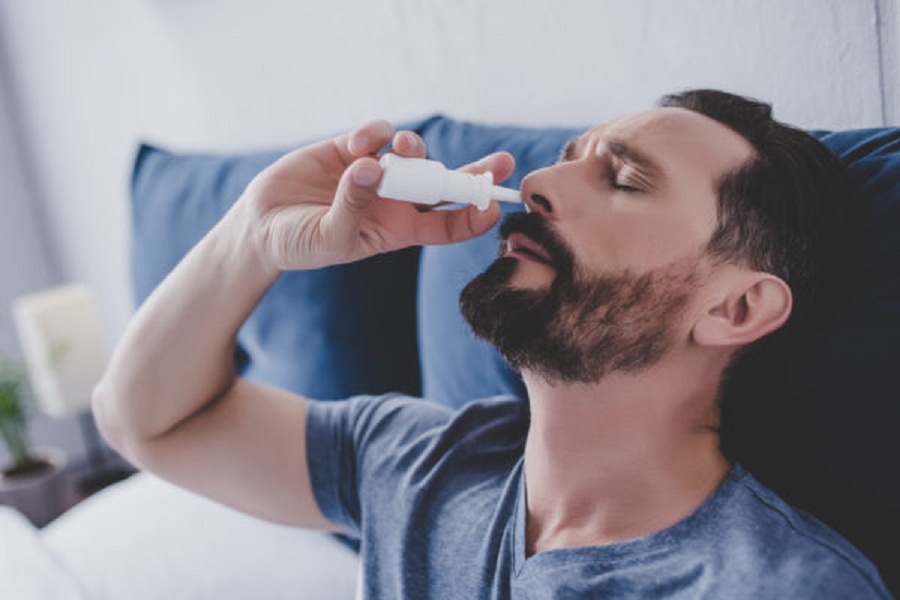
Published :
Updated :

An ear, nose, and throat specialist from Los Angeles, Dr. Marilene Wand, spoke about one of her patients. She suffers from nasal congestion during allergy season. For relief, the patient started on a non-prescription decongestant nasal spray.
It worked great initially and alleviated her symptoms. As she continued using it during the summer, her congestion worsened. It was only controlled by larger and larger doses of the medication, and the nose was fully blocked between sprays. So, she came to her doctor.
Dr. Kelly Erdos, a clinical pharmacist from Arizona, cautioned that patients could develop rebound phenomena due to overuse of nasal sprays, as happened with the patient of Dr. Wang.
Nasal sprays directly deliver drugs to the nasal cavities and are very popular for congestion. The medications in the spray constrict nasal blood vessels, thus helping to open our clogged nose. But if certain sprays are used more than the recommended duration or frequency, there is a high risk that the vessels in our nose will no longer respond to the medicine, giving rise to rebound phenomena.
Nasal decongestants usually come with a warning. They are supposed to be used only for 3-5 days, and doses should be at least 12 hours apart. However, sometimes patients overlook the warnings and continue using it. Because many of these are non-prescription, there is no doctor around to advise them unless they specifically ask about it.
This does not usually happen, increasing the risk of rebound as patients continue to use it longer than the recommended duration. There could be long-term problems in the form of chronic sinusitis or other complications.
Though the label may vary from one type of nasal decongestant to another, general instructions are similar. Application frequency should be restricted to two in a 24-hour period and used only for a limited duration, i.e., not more than five days. Not following the recommendation may trigger a rebound.
There are several types of nasal sprays for congestion; not all cause rebound. Allergy specialist Dr. Mark Aronica from Cleveland Clinic distinguishes three main types. The steroid and antihistamine sprays, according to him, generally do not lead to dependency. As such, the risk of rebound is minimal. But if the goal is to use it for several months, it is advisable to consult a physician. Steroid sprays can be obtained without a prescription, but antihistamines are prescription-only sprays.
Dr. Aronica identified nasal sprays as a high risk for dependency. It works like a charm for cold or flu congestion, but long-term use harms health. Dr. Erdos explained that patients will need a larger dose if they continue to use it, and symptoms will only come back worse once they stop.
In other words, they become dependent on it, and their congestion is not managed without the spray at any time, regardless of whether it is the allergy season or not. Even with the spray, more frequent use may be required, significantly heightening the chance of adverse events.
If someone is using decongestants and feels that the congestion is not improving as expected, or there are symptoms like headache, anxiety, sleep issues, etc., when stopping the drug, medical advice needs to be sought. Treatment generally consists of stopping the spray. The patient’s nose will be completely blocked for some time, and then they would reopen without the drug.
To ensure that we do not experience rebound, following the labels provided with the spray or talking to a doctor or pharmacist about the usage is critical. The standard practice is to start from the lowest available dose of nasal decongestants, avoid using more than twice a day, and stop after 3 days.
imtiazdmc@gmail.com


 For all latest news, follow The Financial Express Google News channel.
For all latest news, follow The Financial Express Google News channel.